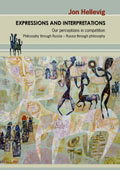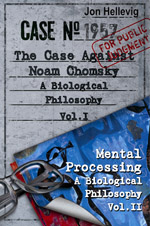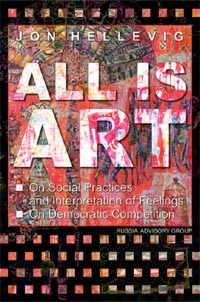|
|
| |
Mathematics
Mathematics is �true� only in so far as the mathematical language deals with its own subject, namely the language of units. Mathematics deals with units; the basic notion of mathematics is a unit and the language is a technique to add and take units and their fractions (splitting, adding, and performing other kind of tricks with units and their perceived parts). One and one always make two - but only in mathematics. In mathematics we do not concern ourselves with the definition of what is to be called a unit � whatever is presented as a unit is one: one apple is a unit; three apples in a bag is a unit (�a bag of apples�); one kilometer of road is a unit. The bag of apples and the kilometer of road make two units. � This issue is in mathematics left to total arbitrary discretion: any area; any size, any amount of constituent particles may form a unit. � If you say so, then it is a unit. � And if this is something that deserves the epithet �exact�, then that just shows what is the force of conventions
Mathematics can be said to be a language, a special kind of language or a sub-language (one could even say that it is a language for a particular kind of game: the game of units). So the difference between ordinary language (language as a whole) and the mathematical sub-language is that ordinary language deals with all aspects of life and mathematical language has captured the notion of unit, but all other aspects (�the infinite multiples of millions�) are left out. � The trust in the unit causes the illusions of mathematics.
Game theory is called applied mathematics � it is mathematics applied to measuring conjectures after the conjectures have first randomly been assigned mathematical values. Game theory is a modern form of nonsense � it is so to say the latest fad in nonsense. It is as if conjectures would have received new dresses and suits to wear � the royal dress of mathematics.
In mathematical form conjectures seem so exact (and that is the essence of the mathematical spell).
Now what is standing on one�s head? It is using the grammar of mathematics to construct logic. In logic they change the infinitely inexact variables of ordinary language to the artificially exact variables of units. The formulas of the type depicting that the combination of five and seven apples yield twelve apples (5 + 7 = 12) are called to serve to prove anything of human knowledge while they cannot even say anything about roundness; goodness, execution, nor smell.
|
|

To download a free pdf file of this book, please click
here
To buy this book, please enter here (www.ruslania.com bookstore)

Click here to download free PDF file

Click here to download free PDF file

Click here to download free PDF file
|

